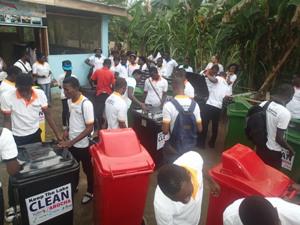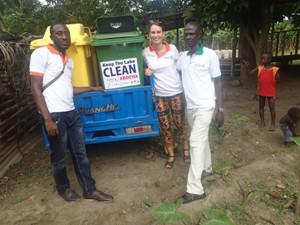Jeffrey Opoku Nyame
The project aims for sustainable management of lake Bosomtwe by enhancing waste disposal practices and education for lake bosomtwe visitors and communities. Practical ground based activities involving provision of dustbins, tricycle, appropriate waste dumps (for waste management) and Conservation education, capacity building and public awareness for both lake visitors and community members are envisaged for addressing the project objectives.

Human impacts on Lake Bosomtwe are rising, highlighting the link between increasing population and inevitable pollution. In 2005, the census report showed that the population of the people living around the lake was 30,000 with a high growth rate of 3.0% (www.ghanadistricts.com). The primary environmental problem at Bosomtwe is the introduction of agricultural, visitor and/or domestic pollutants into the water body (Anim, D et al. 2013). There are 26 indigenous communities surrounding the lake whose main sources of livelihood are fishing and farming. Bosomtwe and its catchment are an economically significant part of their existence. Likewise for the tourism industries that whilst creating jobs for local residents, is absent in ensuring visitors respect the lake and its environmental significance. Thus localised pollution of the lake needs to be addressed by targeting both tourists and local communities through a variety of ground based practical actions. We anticipate that if more waste bins and appropriate waste dumps are provided and signage directs people to utilise refuse dumps located away from runoff areas and far from the lake edge, then it is intended that localised community pollution will decline. Additionally, conservation education, capacity building and public awareness creation among lake visitors and local community residents will engender behavioural change and collective action for the lakes management.
